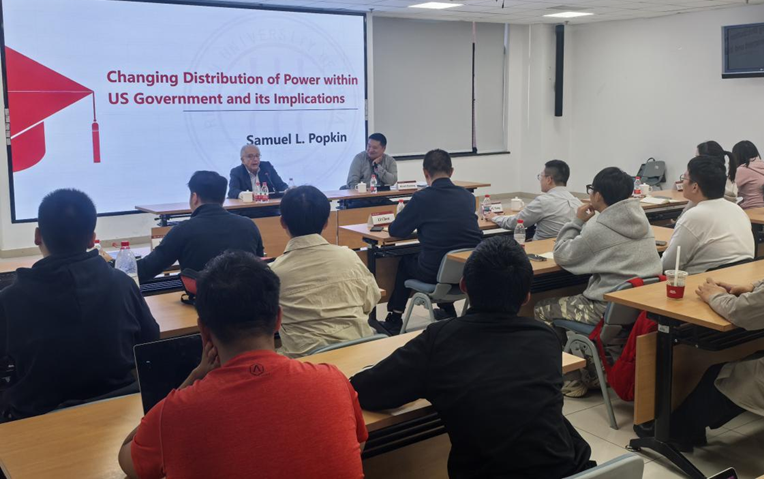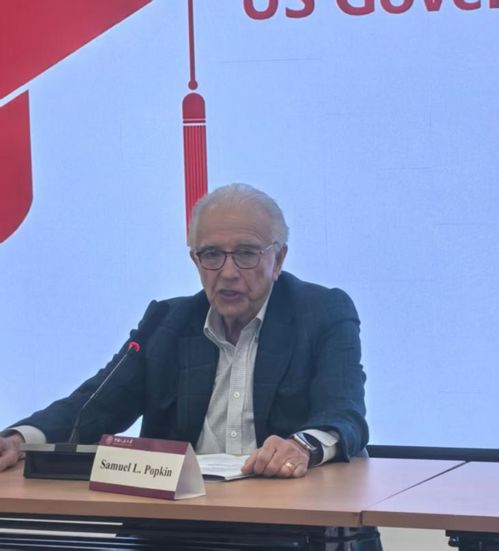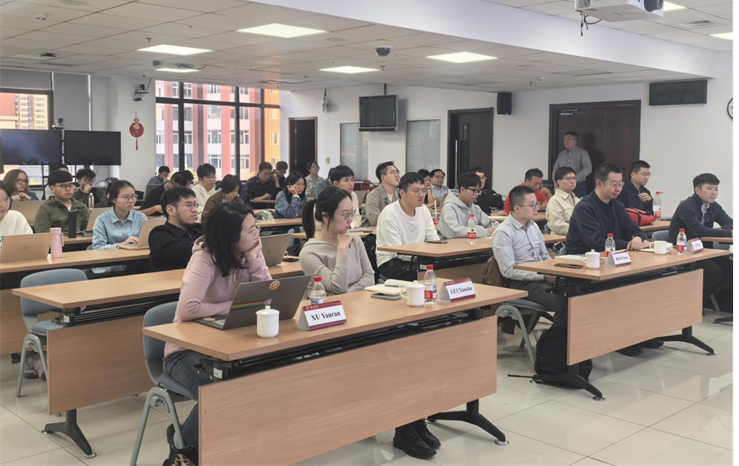NEWS & EVENTS
Lecture on Changing Distribution of Power within US Government and Its Impacts Successfully Held
On October 13th, 2025, Professor Samuel Popkin, Professor Emeritus of Political Science at the University of California, San Diego, visited the School of International Studies at Renmin University of China upon invitation and delivered an academic lecture titled "Changing Distribution of Power within US Government and Its Impacts". The lecture was chaired by Professor Diao Daming of the School of International Studies and Deputy Director of the Center for American Studies. Deputy Dean Li Chen, along with faculty members Han Donglin, Xu Yanran, Zhang Yang, Wu Xian, Gui Xiaoshu, Chen Chunsong, and Zhong Yichen, also participated in the event.

At the beginning of the lecture, Professor Popkin shared his family's deep historical connections with China, expressing his appreciation for China's development and his hope for the rational resolution of differences between China and the United States. He then shifted focus to an analysis of the operational dynamics of power within the U.S. federal government and the current state of its democracy.
Professor Popkin stated candidly that the United States can no longer be considered the so-called "beacon of democracy" for the world. He pointed out that the "Trump phenomenon" has exposed systemic vulnerabilities in the American political system—U.S. politics heavily relies on norms in addition to laws, yet Trump repeatedly breached these norms with impunity. Professor Popkin emphasized that such actions are characteristic of a "polarizer."

Professor Popkin further dissected the core issues of power imbalance in the United States. He argued that loosened campaign finance regulations have allowed wealth to dominate elections, citing instances where politicians solicited massive contributions from oil magnates. Meanwhile, congressional oversight through the "power of the purse" has become ineffective, and the Supreme Court frequently shows favoritism toward the president—even granting de facto immunity by ruling that "official acts cannot be prosecuted." Furthermore, "debt ceiling" votes have been reduced to a partisan tool, and the current administration is attempting to use the threat of government shutdowns to dismantle the social welfare system.
Regarding the future trajectory of American politics, he suggested that the Democratic Party is highly likely to regain control of Congress in the 2026 midterm elections. However, the ultimate balance of power will depend on Supreme Court rulings on critical cases involving tariff policies and presidential immunity. He concluded that American democracy is now facing unprecedented uncertainty.
At the conclusion of the lecture, Professor Diao Daming engaged in an in-depth dialogue with Professor Popkin, centering on the core themes of the presentation, particularly the 2026 U.S. midterm elections and the restructuring of the governance framework under the Trump administration. During the subsequent Q&A session, faculty and students actively participated, raising questions on topics such as the trajectory of Trump's foreign policy, tariffs, and policies regarding rare earth minerals, and the cultural phenomenon of 'strongman admiration.' The event concluded successfully amid warm applause.


